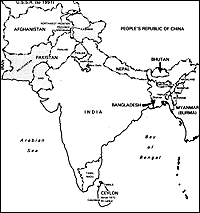 Thimpu, Bhutan - There are few things more dreaded by the working journalist than missing a big story back home, on one's "patch" as it were. It happens to us all, as I found out to my cost last week. The venue for my humiliation, my complete humbling, was this tiny city, in a delightful little cafe that is a match for many of Thamel's finest places.
Thimpu, Bhutan - There are few things more dreaded by the working journalist than missing a big story back home, on one's "patch" as it were. It happens to us all, as I found out to my cost last week. The venue for my humiliation, my complete humbling, was this tiny city, in a delightful little cafe that is a match for many of Thamel's finest places. A fellow Kathmandu expat came through the door as I sipped my coffee in total innocence and fired a broadside. "I suppose you're discussing what's going on in Kathmandu," she said, then looked puzzled as I sprayed fragrant Indian java on my dining companions.
 Not to dwell on the matter, but I was caught out. Away from home in a time of crisis, and the familiar feeling of dread descended like the evening storms that give Bhutan its name, Land of the Thunder Dragon.
Not to dwell on the matter, but I was caught out. Away from home in a time of crisis, and the familiar feeling of dread descended like the evening storms that give Bhutan its name, Land of the Thunder Dragon. Contrite and offering to drive through the night to reach the scene of King Gyanendra's surprise move, I telephoned my editor in London. "Oh don't worry," he said, experienced in the ways of caught-out correspondents, "you've already missed the story so relax and come home as you planned." It was, as you might imagine, not the best of days for me, although I dare say Sher Bahadur Deuba had a much worse case of the Saturday morning blues last week.
I was able to do one thing for faithful Nepali Times readers: a quick survey of opinion in Thimpu on the developments across the Himalayan rampart in Kathmandu. There was, of course, huge fascination, a desire to know what had brought about the king's move. Bhutanese news hounds depend on the international media to bring them developments from Nepal, the second most important country on their jagged horizon. Budgets at Kuensel, the only newspaper, don't allow for a reporter based in Kathmandu, nor do attitudes in either capital, I'm sure. In the absence of a comprehensive chronology of events, the presence of a befuddled, still embarrassed and far too often absconding Nepal correspondent will do. So I was able to proffer a few opinions and demand a few in return.
The consensus, I have to say, among almost everyone I spoke to, was concern that political crises had so often gripped Nepal in recent years. Bhutanese are well aware that stability here serves their interests, as well as those of Nepalis. Some people made reference to their own king, Jigme Singye Wangchuk, and his current policy of gradually establishing a more democratic order to allow the Bhutanese to get used to his absence at the centre of things. "Perhaps you should have done it that way in Nepal," opined a former royal official over a few glasses of the excellent Red Panda beer. (Suggestion to those seeking normal relations between Bhutan and Nepal: free trade in local beer. Trust me, it would work wonders). Another friend, who asked not be quoted directly, said the Bhutanese greatly desired a stable Nepal to perhaps allow the two countries to consult more on relations with India-the large and overwhelming influence in both national lives.
By and large, people in the Thunder Dragon's eyrie thought King Gyanendra's move was a good thing and not particularly surprising although they had no idea-from news coverage on the Internet-that it was coming. "We Himalayan people need guidance," a travel agent told me. "More and more of us want openness and democracy, but we still may not know what's best for us at crucial times." I wonder about that one, but leave it alone for now. The point is, the Bhutanese seem to have a real empathy for what's happening here. Not once did I detect a note of glee at yet another potentially damaging round of political turmoil in Nepal, no one said: "I told you so, democracy is a bad idea". Of course, the issue of the refugees in Jhapa and Morang hangs over the two countries now, as ever, and it's unlikely that a quick settlement of that sad situation will develop soon. But just maybe, Bhutanese goodwill for Nepal can translate into something tangible that's perceived in Kathmandu.
For now, I'll stick to promoting a trans-Himalayan beer exchange as the beginning of a thaw in long frosty relations. Anyone for a cold Red Panda?



